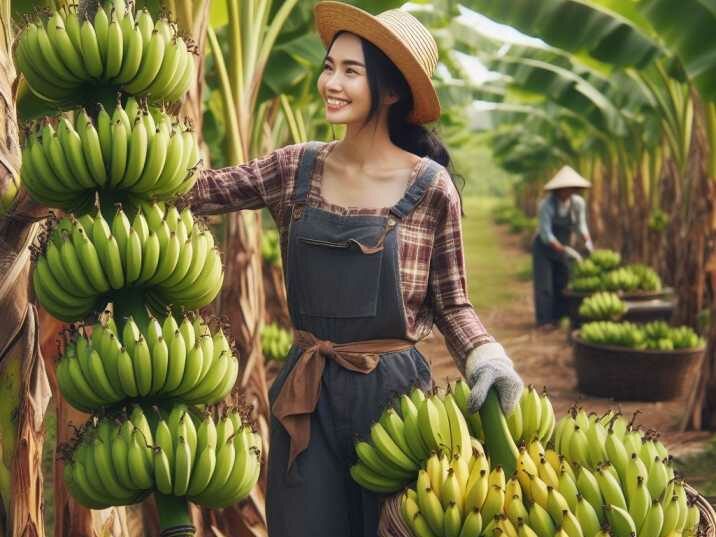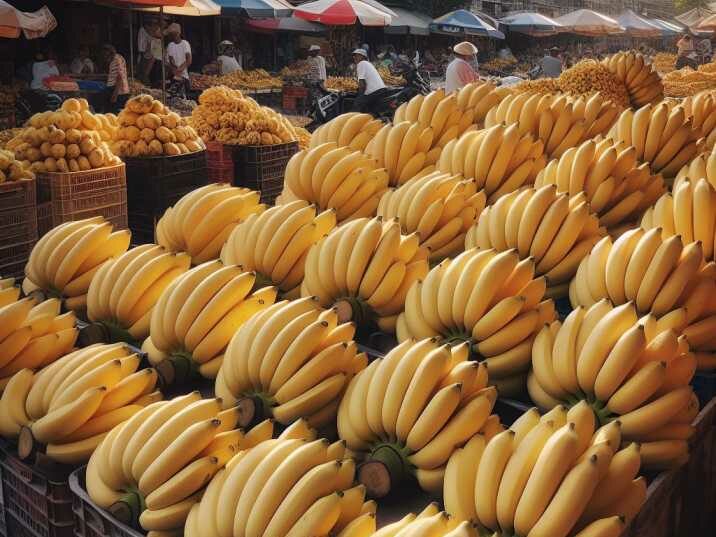Introduction:
Table of Contents
Bananas are one of the most popular fruits worldwide, enjoyed by millions every day. Among the various types of bananas, the Cavendish variety holds a prominent position due to its widespread cultivation and consumption. However, beyond its appeal as a delicious and nutritious fruit, Cavendish banana production has far-reaching economic and social implications that are worth exploring. In this article, we delve into the intricacies of this industry to understand its economic and social impact of cavendish banana production.

Economic and Social Impact of Cavendish Banana Production:
Economic Implications:
Cavendish banana production plays a crucial role in the global economy, contributing significantly to trade and employment opportunities. Banana exports are a vital source of revenue for many countries, particularly those in tropical regions where bananas are cultivated. In fact, bananas are the fourth most important food crop globally, following rice, wheat, and maize. The export value of bananas amounts to billions of dollars annually, with top producers including countries like Ecuador, the Philippines, and Costa Rica.
Social Implications:
The social implications of Cavendish banana production are equally profound, impacting both rural communities and consumers worldwide. Employment is one of the primary social benefits, as banana cultivation provides livelihoods for millions of people, especially in developing countries where employment opportunities may be limited. However, the nature of employment in the banana industry has also raised concerns, particularly regarding labor rights and working conditions on plantations.
Environmental Considerations:
While Cavendish banana production brings economic and social benefits, it also raises environmental concerns. The intensive use of agrochemicals, such as pesticides and fertilizers, poses risks to biodiversity and ecosystem health. Additionally, deforestation for banana plantations can lead to habitat loss and soil degradation, affecting both local ecosystems and global climate patterns.
Challenges and Opportunities:
Despite its economic and social significance, Cavendish banana production faces several challenges, including disease outbreaks and market fluctuations. The spread of diseases like Panama disease threatens banana crops worldwide, highlighting the vulnerability of monoculture farming practices. However, ongoing research and innovation offer opportunities to address these challenges, such as the development of resistant banana varieties and sustainable farming practices.
Table of Information:
| Aspect | Implications |
|---|---|
| Economic Impact | Significant contribution to global trade |
| Social Impact | Employment opportunities for rural communities |
| Environmental Concerns | Agrochemical use, deforestation |
| Challenges | Disease outbreaks, market fluctuations |
| Opportunities | Research and innovation in sustainable practices |
Conclusion:
In conclusion, the economic and social implications of Cavendish banana production are multifaceted, encompassing both benefits and challenges. While it serves as a major source of income and employment for many communities, it also raises concerns related to labor rights, environmental sustainability, and food security. As global demand for bananas continues to rise, it becomes increasingly important to address these issues through collaborative efforts among governments, industry stakeholders, and consumers. By promoting sustainable practices and supporting local communities, we can ensure that Cavendish banana production remains a viable and ethical industry for generations to come.

FAQs:
- What is the economic importance of Cavendish banana production?
- Cavendish banana production is economically significant as it contributes billions of dollars to global trade and provides employment opportunities for millions of people worldwide.
- What are the social benefits of banana cultivation?
- Banana cultivation offers livelihoods to many rural communities, particularly in developing countries, where it serves as a vital source of income and sustenance.
- What environmental challenges are associated with banana production?
- The intensive use of agrochemicals and deforestation for banana plantations pose risks to biodiversity, ecosystem health, and soil quality.
- How do disease outbreaks impact Cavendish banana production?
- Disease outbreaks, such as Panama disease, threaten banana crops globally, highlighting the vulnerability of monoculture farming practices and the need for disease-resistant varieties.
- What can be done to promote sustainable banana production?
- Promoting sustainable farming practices, supporting research on disease-resistant varieties, and advocating for fair labor practices are essential steps towards ensuring the long-term sustainability of banana production.
